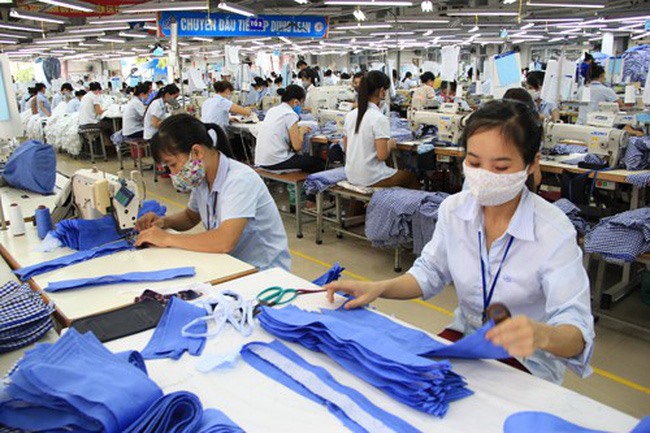The Thanh Cong Textile Garment Investment Trading Joint Stock Company saw both revenue and profit down 1.3 per cent in 2018, due to poor business performance and foreseeable difficulties and challenges ahead.

The Thanh Cong Textile Garment Investment Trading Joint Stock Company saw both revenue and profit down 1.3 per cent in 2018, due to poor business performance and foreseeable difficulties and challenges ahead.
During the company’s 2018 Annual General Meeting of Shareholders held on April 6, the company, listed on the Ho Chi Minh Stock Exchange under code TCM, announced a 2018 target pre-tax profit of VND189.5 billion (US$139 million) in pre-tax profit in 2018.
It also revealed plans to earn VND3.1 trillion in revenue this year.
TMC shares down 17.8 per cent compared to the beginning of this year and down 20.2 per cent compared to its highest peak ever recorded on January 15, 2018.
TCM Chairwoman Phan Thi Hue told online newspaper ndh.vn the firm had to restructure its production in 2017, shutting down two factories. Therefore, revenue and profit target for 2018 were estimated lower due to less income.
At the AGM, TCM’s Board of Directors (BoD) forecast in 2018, the company would confront difficulties related to the textile production protection policies and the preferential tax rate of zero per cent of some countries in the world, together with increasing input costs.
However, the textile sector still has potentials to grow, including abundant young labour force, new markets and zero per cent import tariffs when the Free Trade Agreements (FTAs) coming into force, especially the recently signed Comprehensive and Progressive Trans-Pacific Partnership (CPTPP).
TCM also plans to issue nearly 2.6 million shares to pay dividends for 2017 instead of cash, at a rate of five per cent instead of 10 per cent as previously planned. Charter capital after the issuance is expected to reach VND542.3 billion.
At the same time, the company will issue five per cent bonus shares sourced from TCM’s development investment fund.
In 2018, the BoD plans to pay a dividend of 12 per cent.
Foreign ownership
At the AGM, TCM’s BoD proposed to suspend the procedures for applying for permission to increase the foreign ownership ratio.
This proposal was made after TCM submitted the application to increase the foreign ownership ratio to the State Securities Commission (SSC) but it was denied.
The SSC recommended TCM consider carefully and decide whether to continue to increase its foreign ownership for some reasons.
According to SSC, there are four groups of business that will be directly affected if the foreign ownership ratio is increased, including the wholesale of chemicals, sound and television broadcast receivers; the trading of cigarettes, cigars, books, newspapers, magazines, recorded items, precious metals, precious stones, pharmaceuticals, explosives, crude oil and processed oils, rice, sugar comes from either sugarcane or sugar beets; short-term stay accommodation services; and real estate business.
SSC also added that if TCM increase its foreign ownership ratio, the operation of its two subsidiaries would be affected. For example, the Thanh Cong clinic will no longer be allowed to sell medicines for patients and the TC Tower will be limited in some ways when implementing real estate projects, based on the provisions of the Law on real estate business.
Management model
At the AGM, the BoD proposed to change the management model of the company, by no longer maintaining the Supervisory Board, replacing it by an Internal Audit Committee.
Therefore, the new management model will include the General Assembly of Shareholders, the Board of Directors, the Internal Audit Committee under the Management Board and the General Director.
The term of the current Supervisory Board (2016 - 2021) will end at the 2018 AGM, as soon as the new management model is approved.
The Internal Audit Committee will have three members, consisting of an independent member of the Board of Directors (meaning he or she cannot be either shareholders of the company or executive directors), a non-executive board member and a non-board member.
The independent member of the Board of Directors will be the head of the Internal Audit Committee.
TCM General Director Lee Eun Hong told ndh.vn that the company was carefully preparing for the CPTPP, considering Brazil a potential market with number of orders received.
The US market continued to be TCM’s largest market, growing rapidly compared to 10 years ago. The company would focus on the US market but would also expand the new markets under CPTPP, Hong said. — VNS





